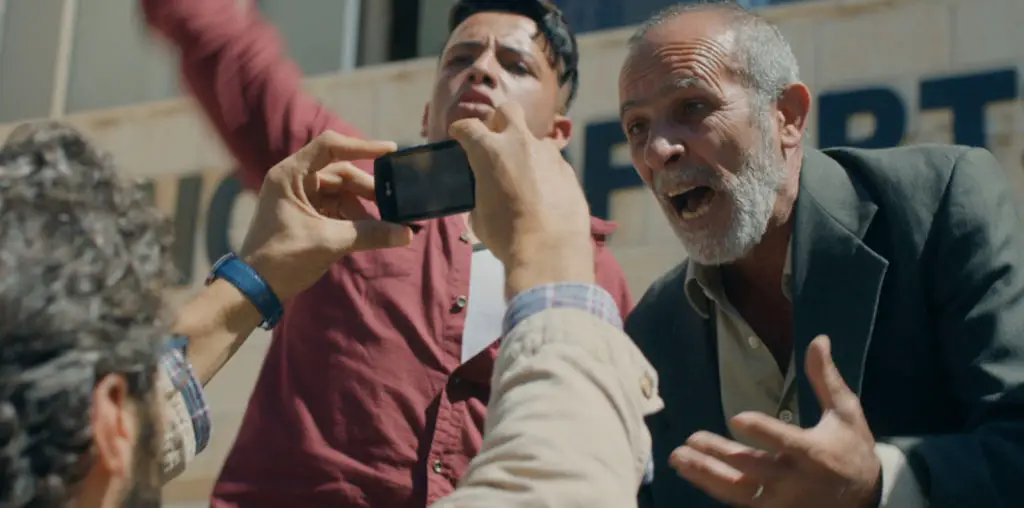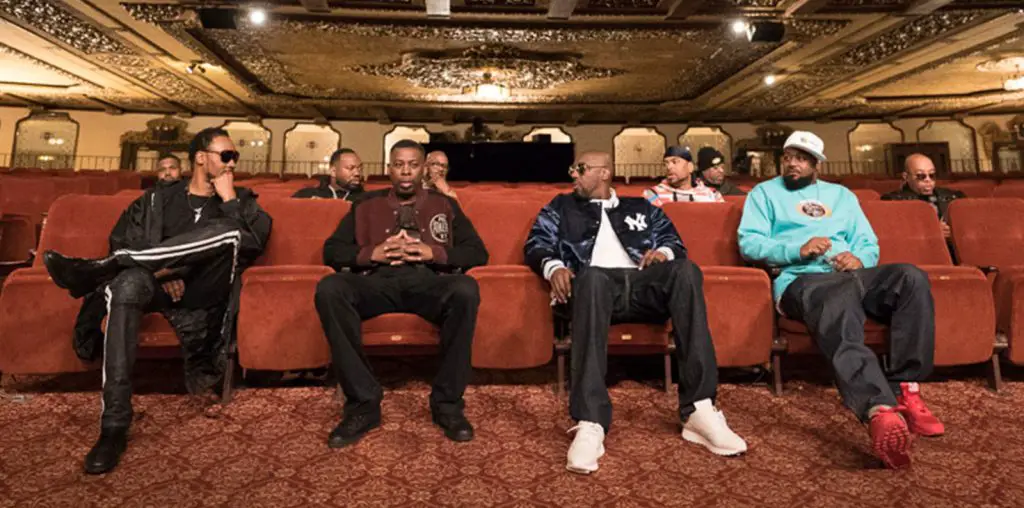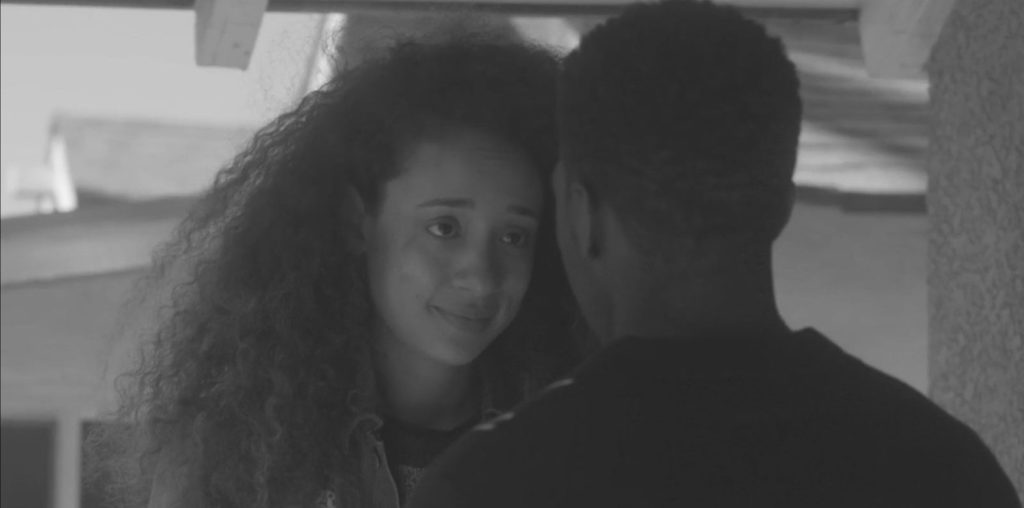
If you’re like the average Los Angeles resident, you’ve had this thought at least once. Convincing someone else to make your script into a movie– especially if it’s a script you want to direct — can take years (assuming that it happens at all), so why wait? How hard can it be?
Well, let these feature filmmakers tell you. The people I spoke with had several things in common: they knew their stories wouldn’t be told unless they made the movies themselves; they worked on their own, without any famous names attached to their projects; and they had spartan budgets ranging from $15,000 to $66,000. So I asked them: What was your experience–and was it worth it?
[ THE SCOOP: ] ^ Drama. In one of Detroit’s toughest neighborhoods, eight friends, lovers and artists decide whether to stay or go. (Co-written and co-produced by Mike Brown.)
[ BUDGET, SCHEDULE, STATUS: ] ^ $29,000 just to shoot the film; with post-production costs added, the total budget is at about $60,000. That figure doesn’t include deferred salaries or production insurance. The money came from private investors and credit cards. Yasmine and Mike wrote the script over the course of a year, shot the film in Detroit during the summer of 1996, and have been working on the post since then. They still need to complete the sound mix, negative cutting, title credits, and optical effects before making release prints that can be screened in theaters.
[ WHY DID YOU DO IT? ] ^ It was a story that was really close to us, and we just really, really wanted to tell the story and knew that was the way we’d have to do it because it wasn’t a script that anyone would give us money to make. We also wanted to show that we could do it. Also, Mike and I went to the University of Detroit and worked in theater there for years, so we knew the local creative community would be able to pull it off.
[ WHAT WAS YOUR EXPERIENCE MAKING THE FILM? ] ^ I went through an 8-month casting process– we had 47 speaking roles, many of which were cut in the editing room– which goes back to why you should make sure you need everything in your script. We shot for 32 days, with six-day weeks. There was a four day rest period when we got a new equipment package– which wasn’t really a rest period, because my actors were also my production people and they drove the van to New York and back to get the new equipment. They were not happy. We had to toss coins about who was going to go. And I still didn’t have time to shoot some scenes.
The owner of our coffeehouse location let us rent the place for the whole month. It became our headquarters– we kept equipment and costumes there, and set up these big tables where we had a family dinner for the crew every night (you know my mom did a lot of the cooking). I suggest that kind of central location for everyone who does an indy film. At dinner we’d talk about what we might have missed that day, and if we had a little time after dinner we’d try to pick up those shots. It made everyone feel like we were all making the movie together.
The community helped us a lot. We were on local television, we had friends with lumber and trucks, we borrowed a lot of things from local people. And when we ran out of money at the end of the shoot, I couldn’t make my mom cook every meal, so one of my actresses became the food coordinator and faxed all these proposals to local restaurants. And the community ended up feeding us. Beautiful layouts, too. I couldn’t believe that they were giving us this food for free. But they saw us shooting in their backyards, you know?
[ WHAT SACRIFICES DID YOU HAVE TO MAKE ALONG THE WAY? ] ^ The first thing you give up at this scale is camera movement because a dolly costs money and it costs time to lay the track. And I didn’t get my exteriors or all of my opening sequence– I had to go back a year later and get my actors back for pickup shots. Their hair had changed, their bodies had changed– and it’s hard to keep morale going for two and a half years. People don’t really believe you’re getting it done, and they don’t understand the costs, and we’ve called in so many favors that people don’t return phone calls sometimes…
Post production has been hard. We haven’t been able to adhere to a set schedule because we never have enough money. As money comes in, we say, “Okay, now we have this much money, so what can we do next?” What people don’t realize when they get into this is that you’re married to the movie. As long as the movie’s not finished and not what you want yet, you’re unhappy and you’re incomplete. If you go into an endeavor like this, you have to see it through to the very end no matter what it takes, because it does take a big toll on your life. Because the movie’s not done until people see it. Until then it doesn’t exist, and you might as well not have shot at all.
[ WHAT ARE YOUR PLANS FOR THE FILM? ] ^ I really want to show it at festivals and let it get attention from people. And then I’d like to sell it and have the investors get their money back. But even if we never get any money or distribution for it, we’re just going to take it around and show it ourselves, because the most important thing for us has always been that people see this story. And you want to learn from how people react to it, and you want them to enjoy it. And then I want to make my next movie.
[ WHAT ADVICE DO YOU HAVE FOR FIRST-TIME FEATURE FILMMAKERS? ] ^ Make sure your script is really ready before you do it, that it’s really tight, that you really love it, because you have to live with those words for so long, and the experience still pays off in different ways [even if there are problems with the script], but the end product will torture you.
I would tell people to make sure they take their scripts through readings even without their official cast, and to videotape scene rehearsals. That helps you fix dialogue, though not structural problems.
People make their scripts so long, and they don’t realize that they’re going to end up cutting at least a third of what they shot, even if they don’t do more than a take or two. And the thing is that when you’re working on a low budget you only have so much film, and your DP’s going to get really annoyed if you’re doing all these unnecessary angles, and the crew doesn’t have the patience, and you don’t have the time– you’re going to be working them 16 hours a day anyway, so if you don’t know what you want visually, you have no time to experiment.
[ WAS IT WORTH IT? ] ^ That’s a never-ending question. I still ask myself if I did the right thing. It’s such a hard thing to get done, and then you have to find your audience. I see a movie like “Good Will Hunting” and it almost makes me mad — I thought it was a terrific movie, and truly independent, but they were smart: they had a really good script and they shopped it around, and then they had money, and they didn’t have to suffer.
If someone asked me, should I make an indie film? I’d say “Think about it hard before you do it.” And then they’d probably just do it anyway. If I said “No,” they would do it anyway. That’s actually the beauty of it.
Check out FILMTHREAT.com’s INTERVIEW ARCHIVES and read hundreds of fascinating in-depth interviews with directors, filmmakers, actors and celebrities from the world of film!


